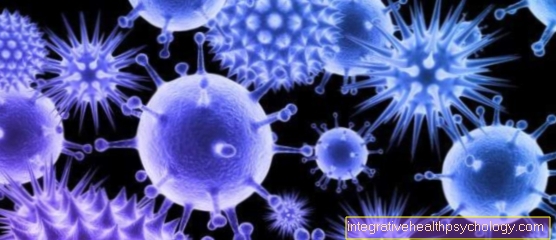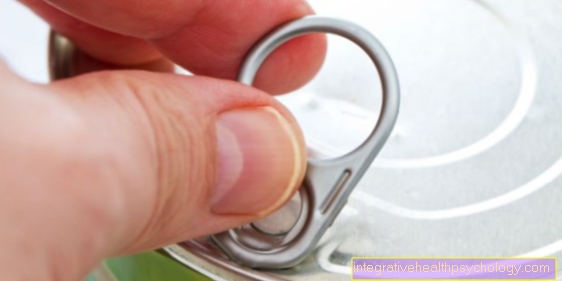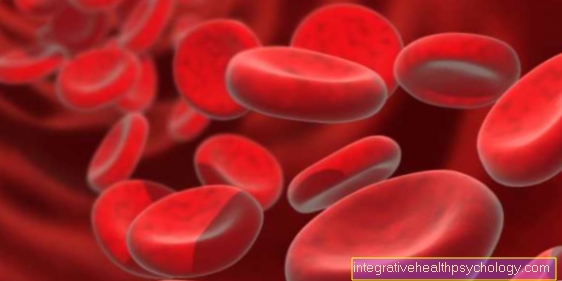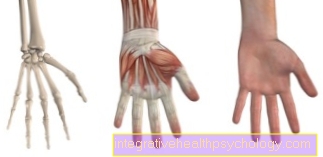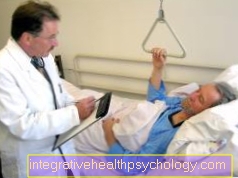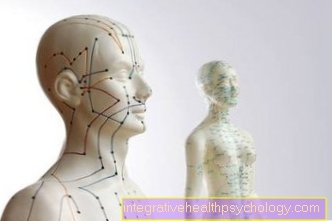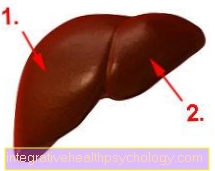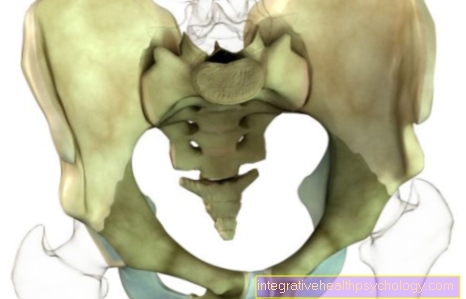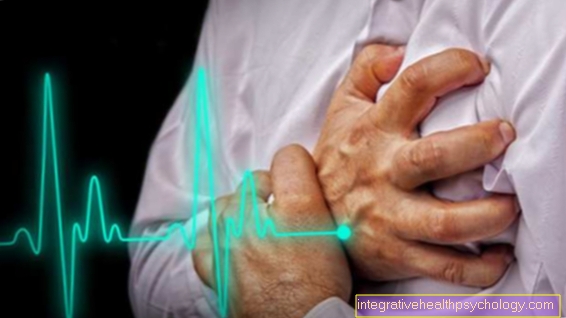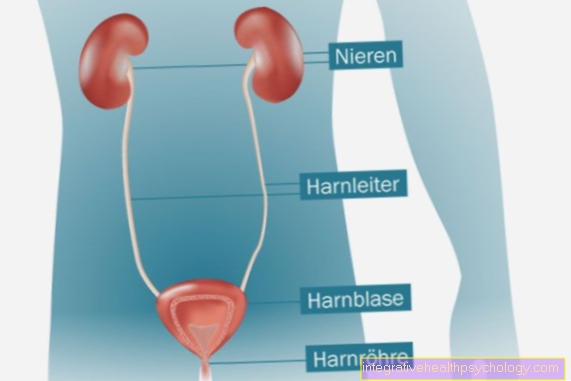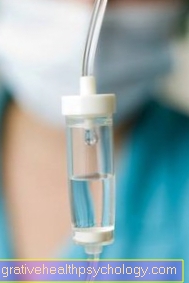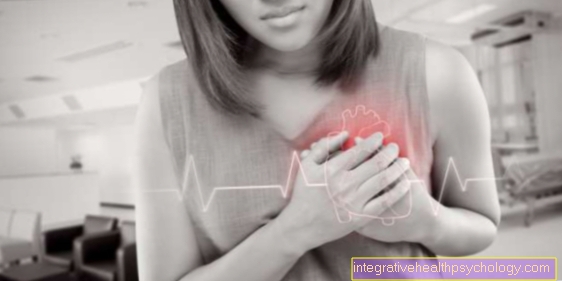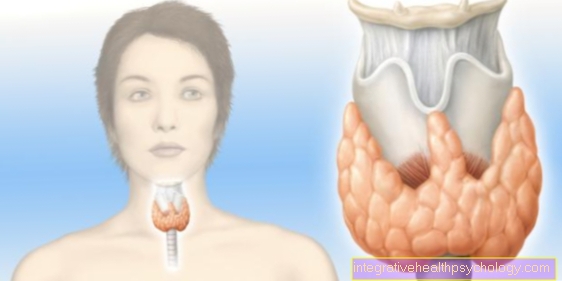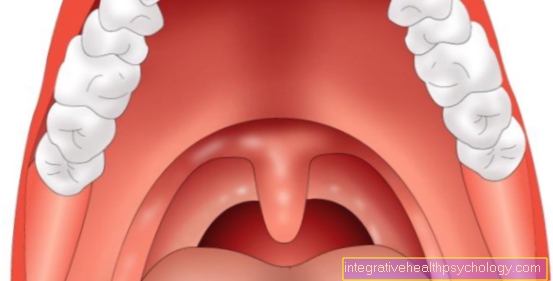Broken Heart Syndrome
definition
The broken heart syndrome is usually referred to in medical jargon as Takotsubo syndrome or Takotsubo cardiomyopathy. The disease is a sudden onset, temporary weakness of the heart pumping which occurs after particularly stressful events and is clinically like a heart attack. The trigger seems to be the release of stress hormones. The disease primarily affects older women. The disease is named after a Japanese squid trap. The shape of this trap is similar to the left ventricle, which has a typical shape in the acute stage of the disease. Even if the name "Broken heart Syndrome" may not suggest it at first, the disease is an extremely serious and potentially life-threatening clinical picture in the acute stage.

Causes of Broken Heart Syndrome
Broken heart syndrome is a rare disease to date. In recent years, however, there have been indications that the disease is diagnosed far less often than it actually occurs. The direct trigger of the illness is an exceptionally strong emotional burden or stressful situation. According to more recent findings, severe physical stress situations such as major operations can also trigger the disease. New studies provide evidence that the hormones and messenger substances released in this stressful situation such as adrenaline, Norepinephrine and Metanephrine act directly on the heart via receptors and thus acutely severely impair its pumping capacity. A contraction disorder of the heart muscle occurs in certain areas, namely the apex of the heart (Apex cordis) and the middle area of the left ventricle (Ventriculus cordis). This contraction disorder leads to the typical shaped heart silhouette, which is reminiscent of the Japanese squid trap and was therefore named for the disease.
You may also be interested in the following topic: How can you prevent a heart attack?
What Can Be the Signs of Broken Heart Syndrome?
The signs of Broken Heart Syndrome are similar to those of a heart attack. Sudden pain in the left side of the chest can occur. The pain often radiates to the left arm. Radiation in the area of the upper abdomen or over the neck into the jaw is also possible. The chest pain is often accompanied by a feeling of pressure and shortness of breath. Furthermore, nausea, vomiting and profuse sweating can occur. If you experience one or more of the above symptoms, especially sudden chest pain, you should seek medical help immediately.
You might also be interested in this article: Heart pounding
Diagnosis of Broken Heart Syndrome
The impresses in the acute situation Takotsubo cardiomyopathy like an acute heart attack. Patients complain of sudden severe chest pain and shortness of breath. Anamnestic should be asked about a triggering event. Emotionally stressful events such as the death of a close relative, a serious accident or the diagnosis of a serious illness come into question. But positive-emotional events such as winning the lottery can also be triggering. Strong physical stress reactions such as severe surgical interventions are also less likely to be a trigger. From a purely clinical point of view, a heart attack cannot be differentiated from a broken heart syndrome, but in most cases there is no identifiable trigger in heart attacks. A distinction is often not easy on the EKG. So-called ST segment elevations occur in both diseases. While they can usually be assigned to the supply area of a certain coronary vessel in a heart attack, the elevations in broken heart syndrome are usually more diffuse. However, a reliable differentiation cannot be made using an EKG.
The heart enzymes that are typically elevated in a heart attack are also elevated in broken heart syndrome. Usually, however, less severe than in the case of a heart attack. However, the level of certain stress hormones in the blood is significantly higher than in patients with a heart attack. The determination of hormone levels, however, is not part of the basic diagnosis and is not reliable enough. A reliable differentiation between myocardial infarction and Broken Heart Syndrome is primarily possible through a cardiac catheter examination. In the case of a heart attack, there are occlusions in the coronary arteries, but not in the Broken Heart Syndrome. In addition, the typical heart shape of Takotsubo cardiomyopathy is noticeable during the cardiac catheter examination. A heart ultrasound examination (echocardiography) should also be carried out and provides clear indications of the presence of a broken heart syndrome, since typical wall movement disorders are evident here.
You can find more information on the subject here: Diagnosing a heart attack
Associated Symptoms of Broken Heart Syndrome
Takotsubo cardiomyopathy causes the same symptoms as a heart attack. Sudden severe chest pain on the left side occurs (Angina pectoris) which can radiate into the left arm, the upper abdomen or the jaw. Often the patients complain of strong pressure on the chest and shortness of breath (Dyspnea). Often, cold sweats and feelings of oppression occur, and nausea is a relatively common symptom, especially in women.
You might also be interested in this article: Angina pectoris
Therapy for Broken Heart Syndrome
Due to the small number of patients suffering from broken heart syndrome, there are as yet no therapy guidelines for the disease. Due to the severity of the clinical picture and the relatively high risk of complications, inpatient monitoring of the patient with monitoring is always important. In addition, beta blockers and ACE inhibitors are often used in drug therapy. Beta blockers are supposed to protect the heart from the negative influence of stress hormones. ACE inhibitors like Ramipril support the heart's pumping function, which is restricted in the disease. In the first few days, physical rest is essential. In the course of this, the load can then gradually increase. The possibility of rehabilitation treatment can also be considered.
Further information can be found here: beta blockers, ACE inhibitors
Homeopathy for Broken Heart Syndrome
Up to now there are no adequate guidelines for conventional medical treatment of broken heart syndrome. Nor have there been any reliable recommendations on the homeopathic side for treating the disease. In general, homeopathic medicine should only be used in addition to conventional medical treatment, if at all, especially for such serious illnesses.
Duration and prognosis of Broken Heart Syndrome
Broken Heart Syndrome is a potentially life-threatening disease, especially in the acute phase - just like a heart attack - which requires close care and monitoring in an inpatient setting. Especially in the first hours after the onset of symptoms, serious complications such as cardiac arrhythmias or heart failure (cardiogenic shock) come. More recent studies indicate that even after the acute phase has subsided, there is still an increased mortality compared to the normal healthy population. In many patients, changes in the heart muscle regress completely within a few weeks. Overall, however, the disease is not as harmless as previously thought. Due to the small number of cases, there is so far insufficient evidence for the necessity or usefulness of permanent preventive medication after a broken heart syndrome. However, further studies in the next few years will certainly shed light on this bit by bit.
You may also be interested in these articles: Heart failure, cardiac arrhythmias
Can You Die from Broken Heart Syndrome?
Yes, patients with broken heart syndrome can die from it. Especially in the first few hours of the disease, the risk of life-threatening complications is significantly increased. Complications include arrhythmias such as ventricular fibrillation or acute heart failure (cardiogenic shock). These complications are life-threatening and in some cases can be fatal despite adequate intensive care treatment.
What are the long-term effects of Broken Heart Syndrome?
As a rule, the disturbances in the pumping function of the heart subside completely within weeks and months, the patients are usually fully resilient again after a few months and no longer feel restricted in their performance. However, the psychological consequences should not be underestimated. Patients with broken heart syndrome - just like patients with a heart attack - can struggle with anxiety, panic attacks and insomnia after such a drastic life-threatening experience. Recent studies have also shown that patients who have broken heart syndrome are at increased risk for cardiac (heart-related) or cerebrovascular (Blood flow to the brain) have secondary diseases. People who have had Takotsubo cardiomyopathy therefore have a higher than the normal healthy population morbidity (Frequency of illness) and mortality (Mortality).
More information can be found here: Consequences of Stress



